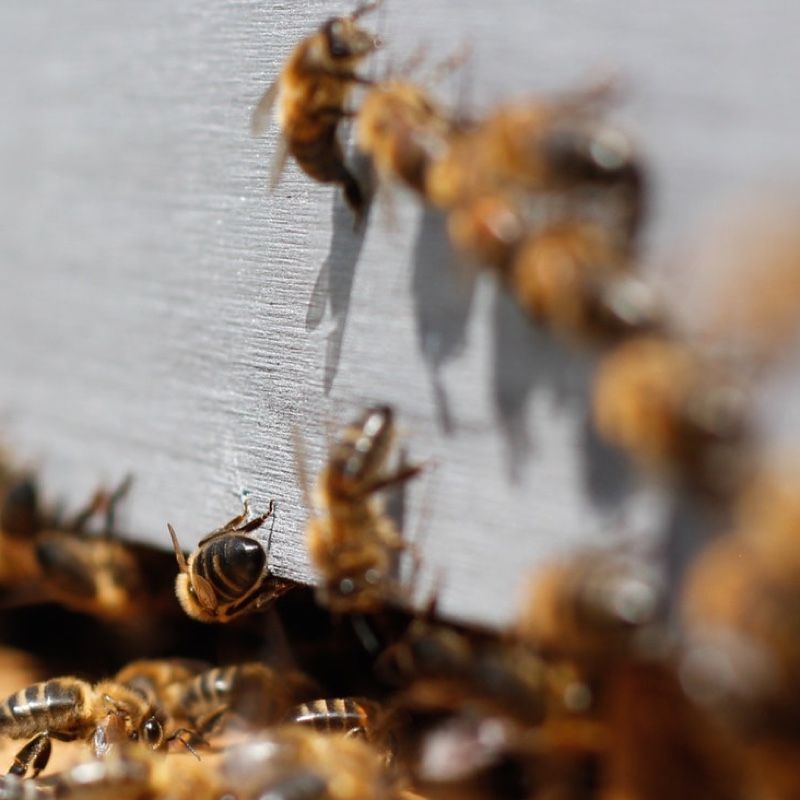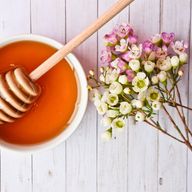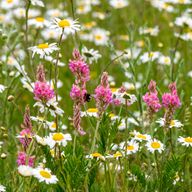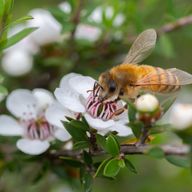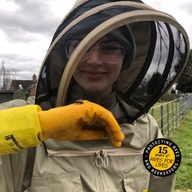
We’re on a mission to save our incredible miniature hive heroes, the honey bee. They’re known and loved for producing delicious honey, but did you know that our diets depend upon these powerful pollinators?
Bees are responsible for so many of our favourite foods, bestowing a rainbow of colour, flavour, variety and nourishing goodness onto our plates. In fact, a staggering three-quarters of crops that produce food for us to eat are reliant on pollinators, like bees. Well-pollinated plants produce larger, more uniform and tastier fruit and vegetables. Plus, inadequate plant pollination can lead to misshapen or bland crops or, worse still, no crop at all.
Through Rowse Hives for Lives, a programme of vital initiatives, we’re protecting bees and enriching livelihoods at the same time.
We’re working with three wonderful partners to help us achieve our mission:
- The Bee Farmers Association (BFA)
- The Laboratory of Apiculture and Social Insects (LASI) at the University of Sussex
- Bees for Development (BFD)
And here’s how we’re helping to protect our pollinating pals…
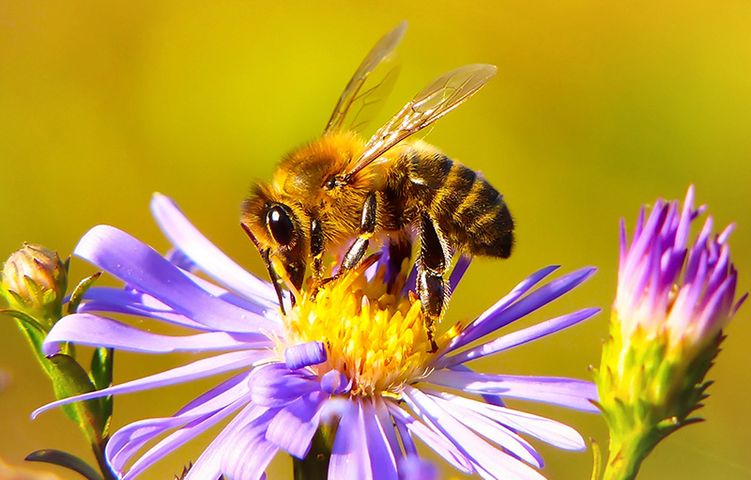
Learning more about bees with The Sussex Plan
Our honey bees are vitally important, so we’re doing what we can to keep our world buzzing. That’s why we partnered with the Laboratory of Apiculture and Social Insects (LASI) at the University of Sussex in 2010. We’re the lead sponsor of the Sussex Plan for Honey Bee Health & Well-Being, a research scheme led by honey bee guru Professor Francis Ratnieks – the UK’s only Professor of Apiculture!
Some of LASI’s amazing work through The Sussex Plan includes:
- Harnessing the honey bees’ form of natural defence against diseases, called “hygienic behaviour”. Only some honey bees exhibit this behaviour, found to be determined by their genes and therefore passed on by the queen bee. LASI research has shown that this bee-haviour reduces the build-up in the hive of two significant pests and diseases, the varroa mite and the deformed wing virus. Thanks to LASI, beekeepers will be able to breed more hygienic pollinators, effectively helping our pollinating pals to avoid disease in the hive.
- Understanding which plants and flowers bees like to forage on the most, so we can try to plant more of their favourite food. Some of our buzzing friends’ favourite nectar sources exist in natural hedgerows and patches of wild plants and flowers. But, as more and more gardens become manicured, lawns are mown and hedgerows are destroyed for agriculture, bees are finding it more and more difficult to find the nectar they like most. Teaching us which blooms the bees find most attractive, LASI research enables us to make sure there’s plenty of food out there to help them thrive.
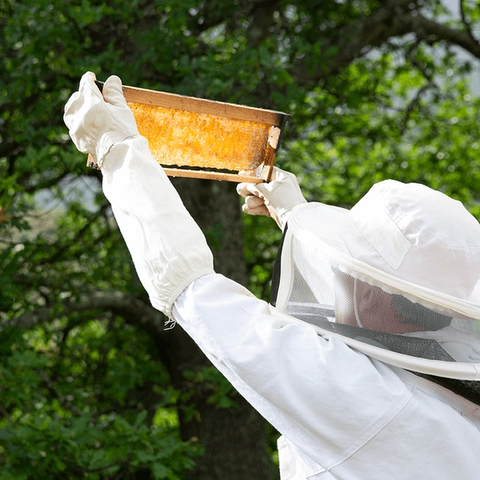
Be a bee farmer with the Bee Farmers Association
With very few wild honey bees left in the UK, the pollinators nearly always need beekeepers to survive. That means they rely on bee farmers to look after the bees that live in managed hives.
We partnered with the BFA in 2014 to give people the chance to learn how to Bee A Bee Farmer. The result is a unique, three-year apprenticeship scheme specially designed to equip young adults with the skills and knowledge needed to make a successful career in bee farming. There are 12 apprentices currently on the scheme, 15 graduates and three new recruits due to start next season.
The young apiarist apprentices will get to work with some of the most experienced bee farmers in the country. With on-the-job training, they’ll learn via practical courses from industry experts, with topics spanning from queen bee rearing to marketing, finance and health and safety. The bee-rilliant apprentices who complete the programme are awarded an official bee farming accreditation – the Excellence in Bee Farming Diploma, by the Worshipful Company of Wax Chandlers. It’s the ideal start to an inspiring, fulfilling career.
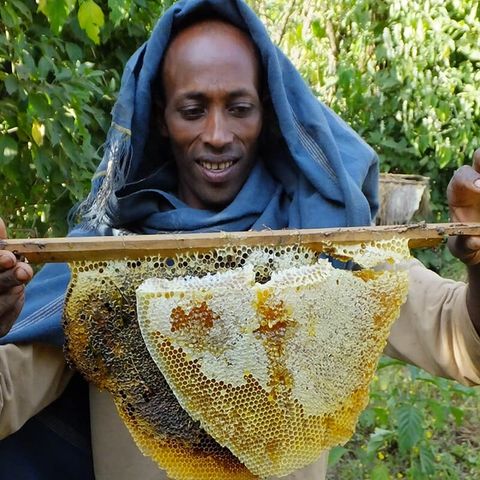
Promoting sustainable beekeeping with Bees for Development
Our final partner is Bees for Development, who we’ve worked with since 2018. Their work promotes sustainable beekeeping, combats poverty and builds sustainable, resilient livelihoods. Our partnership supports two communities in Ethiopia by giving people the skills to create their own hives and training in how to keep bees. We have already helped plant and protect 60 hectares of land that had been badly degraded, so that it is better for people, nature and bees, and will be expanding this in 2021. The honey bees will play a vital role in sustaining this environment through pollinating crops and plants. The end goal? To establish environments that are good for bees, good for biodiversity and good for people.
As of the end of 2020, the initiative had…
- Created 360 new bee colonies
- Trained 120 new beekeepers
- Positively impacted the lives of 300 families in Ethiopia through both beekeeping and bee foraging, as well as benefits of a land restoration project. The families are benefitting from being able to cut and carry grass for their livestock, and from improved stream flow – providing water for their livestock, vegetables and daily lives.
- Reforested 60 hectares of land, which had been devastated by deforestation
Some of the people that the project has positively impacted have been given a new opportunities in life, including Mulu, whose story you can see here, and Alemnesh, whose story you can see here.
Plus, 100% of the profits made through sales of our Ethiopian honey are donated to Bees for Development and go back into improving livelihoods through beekeeping in Ethiopia.
Feed the Bees
As well as working with our un-bee-lievable partners, we launched #FeedTheBees in September 2020 to encourage the public to grow wild. Offering wildflower seed balls for free, we encouraged everyone to find a pot, patch or planter at home to help our bee-loved wildflowers grow.
Wildflowers are full of nectar and pollen, which bees use as a food source, to pollinate crops and other flora, and to make our delicious honey. They’re also ideal as bees love bright flowers of varied heights, and bloom from March to October – a bee’s busiest time of the year.
We’re doing all we can to help our miniature hive heroes and improve livelihoods through beekeeping. If you’re keen to find out how you can get involved with any of our initiatives, fly over to https://www.rowsehoney.co.uk/hives-for-lives/
